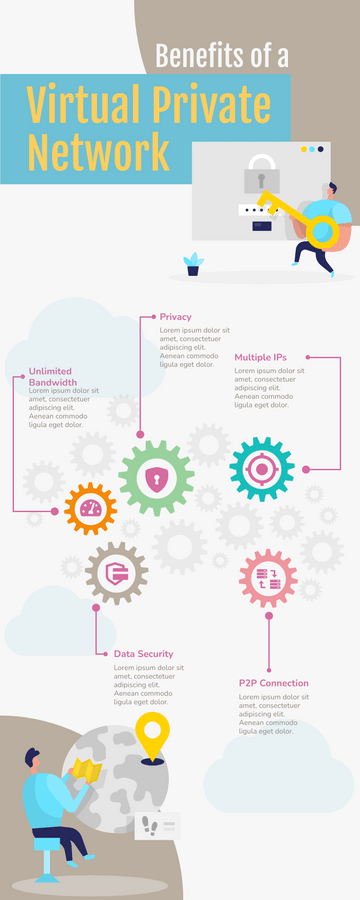VPNの利点
VPN or virtual private network allows you to create a secure connection to another network over the Internet. At first, they are just a way to connect business networks together safely through the Internet, or to allow you to access business networks from home.
Now VPN is really popular, but not solely because the purposes VPN were originally created. Instead, VPN are often be used to access restricted websites, protect your browsing activities from public WiFi, and so on.
Protect Your Privacy
Consider a public Wi-Fi network, perhaps at a coffee shop or airport. Are you sure the Wi-Fi network is secure? Or it could be monitored by a hacker who tracks personal data, such as passwords and credit card information, that you transmit every time you surf the Internet.
How a VPN Works
A VPN is a private network which connects remote sites or users together by using the internet. The VPN uses “virtual” links routed to a remote location via the company’s private network or a third-party VPN provider. When it’s transmitted over a Wi-Fi network, VPNs use encryption to scramble data. VPNs help maintain confidentiality, and can not be read by someone intercepting the encrypted data.

Benefits of VPN
- You can link to a server in another country with a VPN and “trick” your location.
- You may use a VPN to return to familiar locations and access the Internet as usual if you are outside the United States.
- You can also do the opposite: from the safety of your house, you can jump to a remote VPN server and maybe view streaming content that is not accessible in the US.

